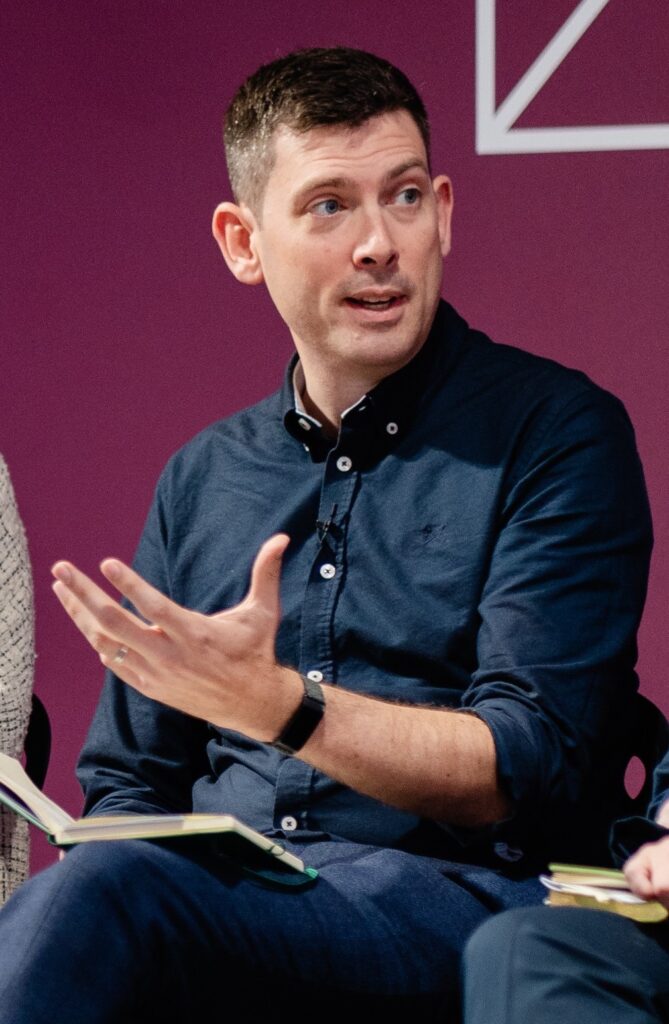Sign-up here to receive the monthly iED bulletin
Sign-up here to receive the monthly iED bulletin

Delegates stood pressed in along the walls, sat on the floor in the aisles and even filled corners behind the panel of speakers to attend the policy forum on town centres and high streets at the recent Liberal Democrat Conference in Bournemouth.
The size of the crowd in the policy forum was ample evidence of the pressing importance of the issues surrounding struggling local economies and the keen interest of local politicians representing communities across the length and breadth of the land. With many high streets struggling in the era of e-commerce and more than decade of shrinking council budgets leaving town centres in a poor state of repair, the reason for the political interest was of course obvious.
As economic development professionals well know, the health of high streets and town centres is linked closely to a communities’ sense of opportunity, aspiration, pride, and ownership. Thriving centres are not only economic hubs but also engines of social cohesion and connection. By contrast, run down places drive discontent and disconnection of the kind currently expressing itself in marches like the one I witnessed on my walk up to the conference from Bournemouth pier, where a flag-waving crowd was gathering to march on the traditional seaside hotel being used to house asylum seekers.
The decline of retail is only part of the story. In the fringes of the session I spoke to a politician from the East of England who runs a 16-piece big band in his spare time. He lamented the rapid disappearance from towns and cities of affordable mid-sized venues suited to amateur groups like his. This shift in the landscape of civic infrastructure not only weakens the cultural programme available to residents, which can be an enable of social connection, education and wellbeing. It also removes a rung on the ladder to success for rising talent and undermines the wellbeing benefits provided by membership of groups like my new friend’s big band; fewer opportunities to gig weaken the impetus to gather for rehearsals, in turn threatening the emotional and practical support members receive from the regular social connection.
What works?
Delegates were vocal in sharing the many ideas and efforts their councils have sought to revive the fortunes of their local high streets, often in collaboration with community groups and local businesses. These included:
Green (vs) growth?
There was a spontaneous debate on the merits or otherwise of free parking and of pedestrianisation, with some strong opinions expressed on the ‘disaster’ awaiting Westminster from the planned pedestrianisation of Oxford Street, which were hotly contested by advocates from Cambridge and elsewhere now happily on the other side of such projects.
This particular strand of discussion was reflective of the growing debate (mostly taking place outside the conference) about the future of local climate action and its relationship to economic growth. In this session and others, those present from areas with growing support for Reform reflected on how they are making headway reframing green as a growth driver, not a moral crusade. As Pippa Heylings, MP for South Cambridgeshire, reported in another session I attended, when she asked Luke Campbell, the net-zero-sceptic Reform Mayor of Hull and East Yorkshire what he thought about the region’s booming net zero energy sector, he replied “jobs is jobs”.
How do we pay for it all?
Back in the policy forum, discussion turned to different possible mechanisms for raising funds to pay for town centre and high street renewal. Frustration was expressed at the way public grants often came with implausible delivery timeframes and no allocation to cover ongoing maintenance. Attendees argued for the abolition of Business Rates in favour of alternative levies, and debated the potential for a Digital Sales Tax to offset the impact of e-commerce, with a younger delegate warning of the risk such a policy would help some local retailers at the expense of the spending power of cash strapped communities.
Representatives from Greenwich and picturesque Cotswold towns spoke up for introducing tourist taxes. These areas have the opposite problem to most, where far from being desolate and unloved, their high streets are packed with tourists. This means that local provision is tailored to the visitor economy, with little to no offering to meet the needs of local residents.
A new hope for high streets
As the forum drew to a close there was a wary acknowledgement that the current government’s appetite for devolution may be faltering, so may not deliver the hoped for step change in local funding needed to drive renewal. At this point in proceedings I shared several hopeful examples of local areas partnering successfully with impact capital to deliver local priorities outside of public funding – from philanthropic local funds in Stoke, to climate bonds in West Berkshire, and institutional scale investments in Plymouth. A century ago, councils, anchor employers and local citizens routinely worked together to shape and fund place transformation. The examples I gave and others reflect a growing renaissance in this place-based impact investing. If Whitehall isn’t coming to save areas, they may just have to get on and save themselves.
Sam Markey is founder and Managing Director of Recurve and a Senior Associate at the Impact Investing Institute. Recurve is an Awards Partner at the iED Annual Awards 2025, sponsoring the Collaborative Initiative of the Year category.
Would you like to write for the iED? As part of iED individual and organisation membership, ALL members have the opportunity to publish articles on our website. We are now seeking ideas for contributions from members, including those in our Early Career Network. These can be around any aspect of economic development, insights on work you are undertaking and project successes you would like to share, or any viewpoint you would like to express. If you have an article proposal please email philsmith@ied.co.uk.